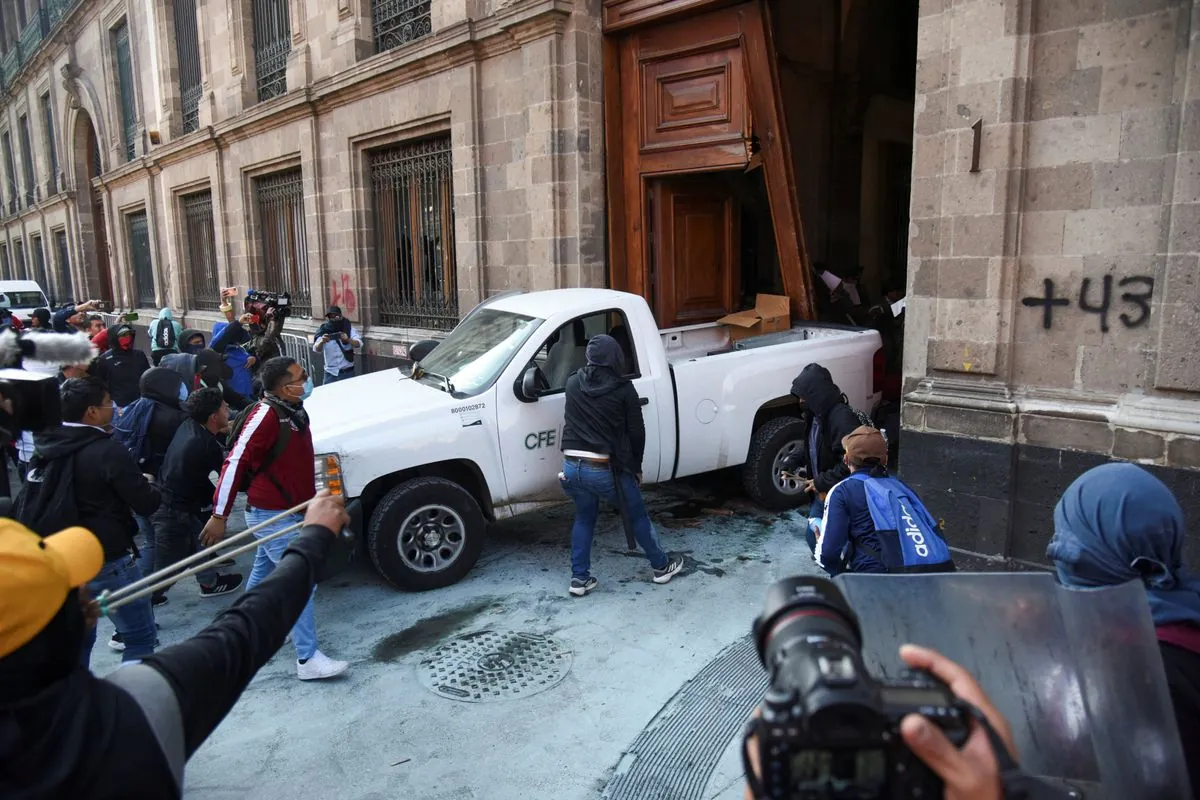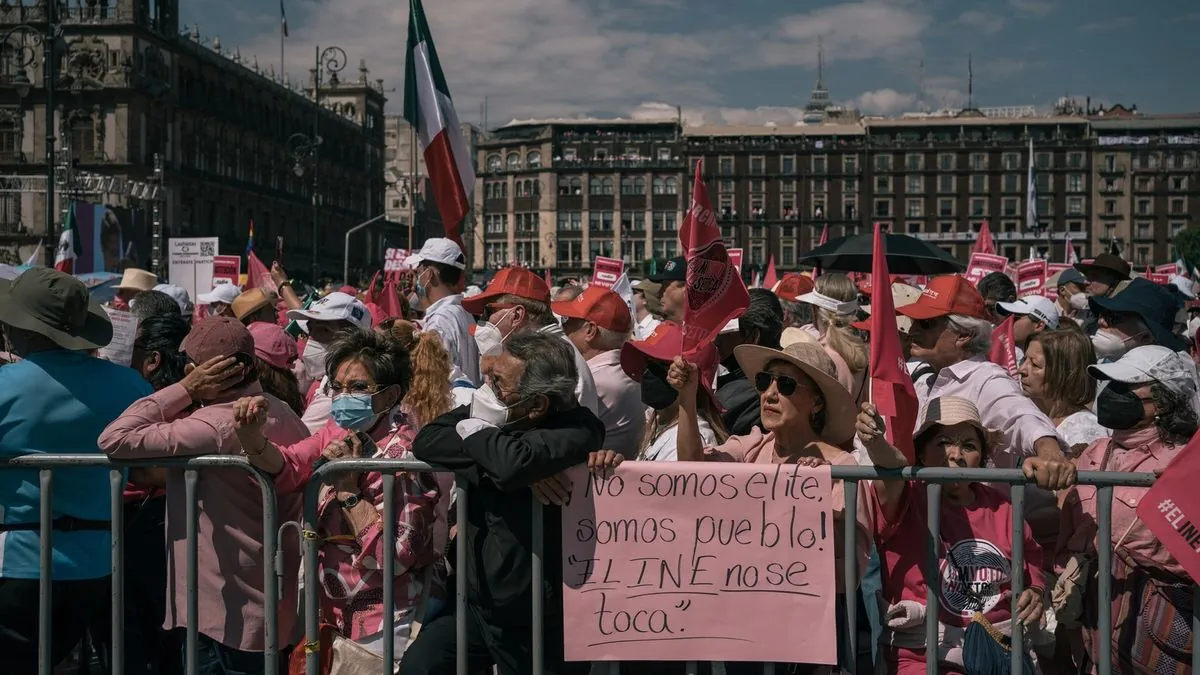Mexico City Protests Erupt Over Controversial Judicial Reform Proposals
Demonstrators block Congress entrances in Mexico City, protesting proposed judicial reforms. Critics argue the changes would politicize courts, while the government claims they address corruption. Tensions rise as Morena party pushes forward.

In a significant display of opposition, protesters have obstructed entrances to Mexico's Congress, voicing their dissent against proposed judicial reforms. The demonstrations, which took place on September 3, 2024, brought together a diverse group of court employees, students, and critics who expressed concerns over potential changes to the judicial system.
The proposed constitutional reforms, put forward by President Andrés Manuel López Obrador's Morena party, have sparked controversy and led to strikes among court employees, including those at the Supreme Court. Critics argue that these changes could undermine the independence and professionalism of the judiciary.

Under the current system, judges and court secretaries progress through the ranks based on their performance and experience. However, the proposed reforms would allow any lawyer meeting minimal qualifications to run for judicial positions, with some candidates potentially selected by lottery. This shift has raised concerns about the potential politicization of the courts and the erosion of judicial expertise.
The Mexican judicial system, based on civil law derived from the Napoleonic code, has undergone significant changes in recent years. Over the past 15 years, reforms have aimed to increase transparency and accountability within the courts. These efforts included transitioning from closed-door, paper-based trials to a more open format with oral arguments.
Ricardo Monreal, the Morena party's congressional leader, has stated that the vote on the reforms will proceed, even if it means relocating the session to an alternative venue. The ruling party currently holds the two-thirds majority required to approve the constitutional changes.
"The party with the majority could take control of the judicial branch, and that would practically be the end of democracy."
The proposed reforms have not only sparked domestic controversy but have also strained international relations. Both the United States and Canadian embassies have expressed concerns over the potential impact on democracy and Mexico's commercial relationships. In response, President López Obrador has reportedly "paused" relations with these diplomatic missions.
It's worth noting that Mexico's Supreme Court of Justice of the Nation, the country's highest constitutional court, consists of 11 justices appointed for 15-year terms. The judicial branch also includes specialized courts for areas such as tax, administrative, and agrarian matters, reflecting the complexity of the legal system.
As tensions continue to rise, the outcome of this judicial reform debate could have far-reaching implications for Mexico's democratic institutions and its standing in the international community. The protests underscore the ongoing challenges in balancing judicial independence with efforts to address corruption and inefficiency within the court system.


































